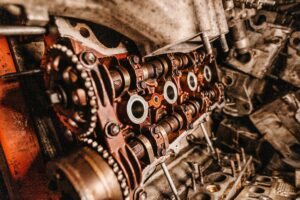Why Sanitary Valves Are a Must-Have in Dairy Processing Lines
In the dairy industry, maintaining product purity and meeting stringent hygiene standards are non-negotiable. From pasteurization to packaging, every stage in the dairy processing line demands high levels of cleanliness, efficiency, and control. One of the most vital components that ensure these standards are met is the sanitary valve.
Sanitary valves are specifically engineered to handle fluids in industries where cleanliness is critical. In dairy plants, they control the flow of milk, cream, whey, yogurt, and other dairy-based liquids while preventing any risk of contamination. These valves are built using materials and designs that support the highest standards of food safety.
The Role of Sanitary Valves in Dairy Processing
Dairy processing lines involve several interconnected stages – receiving raw milk, heating, fermenting, cooling, homogenizing, and packaging. At every stage, sanitary valves act as vital control elements to ensure safe and efficient operations. These valves are not only responsible for directing flow but also play a key role in hygiene, pressure stability, and maintenance ease. Here’s a closer look at their critical functions:
✅ Flow Control
Sanitary valves are designed to regulate the direction, volume, and speed of dairy fluids like milk, cream, whey, or fermented liquids through the pipeline system. In processes such as pasteurization or homogenization, precise control of flow is essential for ensuring uniform processing.
For example, during milk separation or standardization, butterfly or diaphragm sanitary valves are used to divert streams without leakage or cross-contamination. Automated valves with sensors help maintain accurate dosing, which is particularly important in batching and mixing operations.
✅ Hygiene Management
Hygiene is the cornerstone of dairy production. Sanitary valves are engineered with smooth, crevice-free surfaces, using food-grade stainless steel like SS316L to prevent any buildup of milk proteins, fats, or biofilms. The internal geometry of these valves discourages the accumulation of residue that could lead to bacterial growth or spoilage.
Furthermore, many sanitary valves come with self-draining designs, ensuring that no residual liquid remains trapped after the process ends. This greatly reduces the risk of microbial contamination, supporting consistent quality and extending product shelf life.
✅ Pressure Regulation
Maintaining consistent and safe pressure is crucial in dairy pipelines to protect both the product and the equipment. Sanitary valves help balance and regulate pressure during critical processes such as pasteurization, where fluids are heated under controlled pressure.
Uncontrolled pressure fluctuations can lead to foaming, leakage, or even damage to processing lines. Valves such as pressure relief valves and control valves ensure that the system remains within optimal pressure limits, thereby preventing process interruptions and equipment strain.
✅ CIP/SIP Compatibility
Downtime for manual cleaning in dairy processing can lead to substantial productivity losses. That’s why Clean-in-Place (CIP) and Sterilize-in-Place (SIP) processes are widely adopted in modern dairy facilities. Sanitary valves are designed to support these automated cleaning and sterilizing cycles.
Valves compatible with CIP/SIP have sealed actuators, special seat designs, and minimal dead zones to allow detergents and steam to flow freely through them. This ensures the entire valve interior is thoroughly cleaned without dismantling, which saves time, reduces labor costs, and ensures repeatable sanitation.
✅ Additional Features and Industry Integration
- Automation Ready: Many sanitary valves can be integrated with pneumatic or electric actuators and PLC systems, allowing precise, automated control during continuous or batch processing.
- Sampling and Drainage Valves: Used in testing milk quality or draining tanks without compromising product integrity.
- Compliance-Driven Design: Sanitary valves are manufactured in accordance with industry standards like 3-A, FDA, and EHEDG to meet both Indian and global regulatory requirements.
Why Sanitary Valves Are Non-Negotiable in the Dairy Industry
1. Ensuring Product Safety and Purity
Dairy products are highly perishable. Even a small amount of contamination can lead to spoilage or health hazards. Sanitary valves are made of non-reactive stainless steel (typically SS316L), which resists corrosion and does not leach harmful substances into the product. Their smooth surfaces eliminate crevices where bacteria can hide, ensuring microbial control at all times.
2. Compliance with Food Safety Standards
Sanitary valves meet global hygiene certifications like 3-A, FDA, and EHEDG. They are essential for dairy processors who must adhere to strict safety guidelines under FSSAI, ISO, and other regulatory bodies. Choosing valves that are designed to meet these certifications helps processors avoid non-compliance issues and costly recalls.
3. Support for CIP and SIP Processes
Downtime in dairy processing can be costly. Sanitary valves support automated Clean-in-Place (CIP) and Sterilize-in-Place (SIP) methods that clean equipment without disassembly. This ensures faster changeovers, reduced labor, and consistently clean production environments.
4. Long-Term Cost Savings
Although sanitary valves may seem like a higher upfront investment, they offer significant long-term value. Their durability, minimal maintenance requirements, and reduced downtime translate into long-term savings for dairy plants.
Applications in the Dairy Line
Sanitary valves are used across various dairy applications such as:
- Milk receiving and transfer
- Pasteurization units
- Cream separation and standardization
- Yogurt and fermented product lines
- Cheese and whey processing
- Sterile filling and packaging stations
At each point, valves like sanitary butterfly valves, diaphragm valves, and ball valves help maintain product integrity and streamline operations.
Choosing the Right Sanitary Valve Supplier in India
India is home to several reputable valve manufacturers catering to the food and dairy industry. Partnering with a reliable sanitary valve supplier in India offers multiple advantages:
- Cost-effective pricing with high quality
- Availability of spare parts and after-sales support
- Local compliance with global hygiene standards
- Customization for unique dairy applications
- Faster lead times and installation assistance
Whether you’re setting up a new processing line or upgrading an existing system, working with a trusted sanitary valve supplier in India ensures better control, compliance, and operational efficiency.
Conclusion
Sanitary valves are indispensable in the dairy industry. Their role in maintaining hygiene, product quality, and regulatory compliance makes them a must-have for any dairy processing line. Investing in high-quality valves and working with a reputed sanitary valve supplier in India is key to achieving operational excellence in dairy production.













